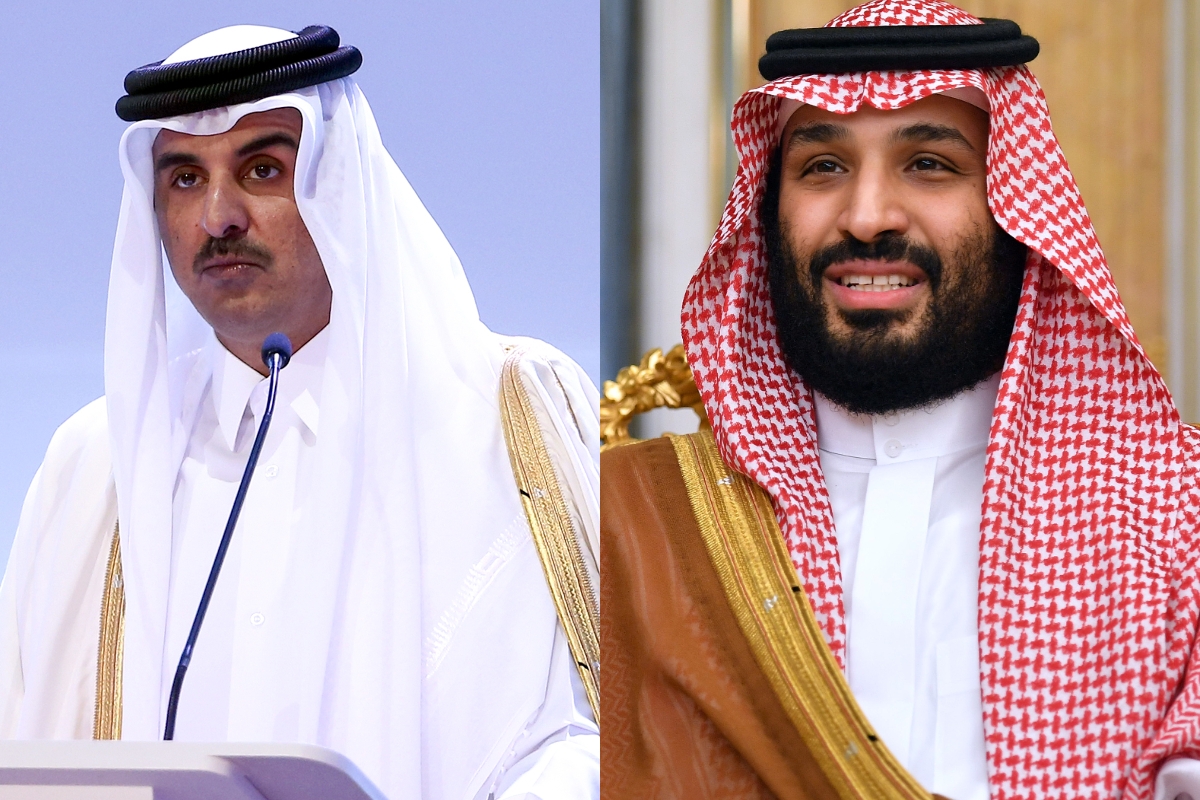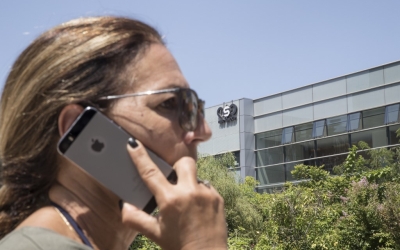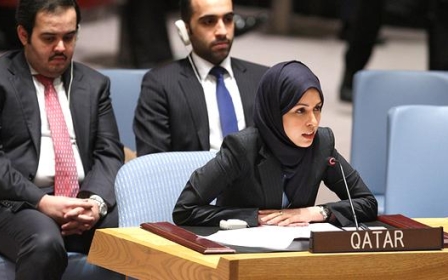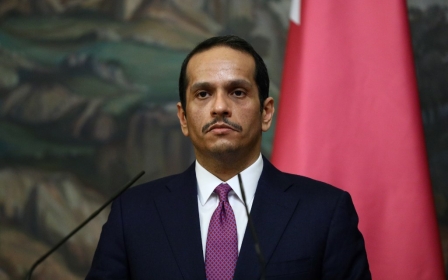Saudi Arabia agrees to end blockade on Qatar, opens airspace and land border

Saudi Arabia has agreed to lift its land and air blockade on Qatar in a major step towards ending a Gulf rift that started more than three years ago, when Riyadh and its allies imposed a siege on Doha.
Kuwait's Foreign Minister Ahmad Nasser al-Mohammed al-Sabah announced the breakthrough on Monday, ahead of a highly anticipated Gulf Cooperation Council (GCC) summit where a broader resolution to the crisis is expected to be reached.
Al-Sabah did not elaborate on whether the preliminary agreement between Qatar and Saudi Arabia extends to the other blockading countries - the UAE, Bahrain and Egypt.
But he conveyed the gratitude of Kuwait's emir to the leaders of the Gulf and Egypt, saying that they are all working for Tuesday's GCC summit to reflect unity and for affairs to return to normal, ensuring "cooperation and solidarity".
"This has gone on for three and a half years, and nobody benefited from it," said Imad Harb, director of research and analysis at the Arab Center Washington DC.
New MEE newsletter: Jerusalem Dispatch
Sign up to get the latest insights and analysis on Israel-Palestine, alongside Turkey Unpacked and other MEE newsletters
He said Saudi Arabia lost its GCC "supremacy" partly because of the crisis - with Qatar breaking away completely, Kuwait adopting a stance of neutrality, and even the United Arab Emirates opening its own channels with the West and normalising relations with Israel.
Putting GCC back together
Harb told MEE that Monday's announcement appears to be like a bilateral agreement between Riyadh and Doha, and it remains to be seen whether the rest of the GCC and Egypt will join in the reconciliation effort.
"But the important part about it is more than just opening borders - it's also that Saudi Arabia has realised that they cannot go on with the same old policy ... now they are finding that maybe it's time to really put things back together and try to put the GCC back together," Harb said.
'This has gone on for three and a half years, and nobody benefited from it'
- Imad Harb, Arab Center Washington DC
Qatar confirmed on Monday that Sheikh Tamim, its emir, will lead the country's delegation to the summit in Al-Ula, Saudi Arabia.
Saudi Arabia's Crown Prince Mohammed bin Salman welcomed the breakthrough in the impasse on Monday, saying the kingdom's approach was based on enhancing "the ultimate interests of the Gulf Cooperation Council (GCC) member states and the Arab countries".
"[The] Crown Prince reasserted that the upcoming GCC summit shall be a summit to close the ranks and unify the stance and to enhance the march of the good and prosperity," the kingdom's official news agency SPA said in a statement.
The Saudi-led quartet had imposed the blockade in June 2017, accusing Qatar of interfering in the countries' internal affairs and backing militant groups - charges that Doha denies.
For lifting the blockade, the alliance submitted a list of 13 demands, including shuttering the Doha-based Al Jazeera news network, ending Turkish military presence in Qatar and cutting diplomatic ties with Iran.
Doha categorically rejected the ultimatum.
Harb said the Qatari-Saudi rapprochement renders the quartet's demands "no longer applicable".
"They never were applicable in the first place anyway. But for Saudi Arabia to say: 'Well, okay we're not going to be hung up on the issue of the 13 demands' means that they're willing to just give up on all of them," Harb said.
However, he added that attacks by the respective "media arms" of both countries are likely to be toned down after the agreement.
Immediately after the crisis began, outgoing US President Donald Trump expressed support for Riyadh and Abu Dhabi and their allies, but over the past three years, his administration has been calling for an end to the impasse.
Resolving the dispute
Trump dispatched his son-in-law and senior adviser Jared Kushner to the Gulf region last month to work on finding a solution to the rift between Washington's allies before the US president's term expires on 20 January.
A senior US administration official told Reuters that Gulf countries and Egypt will sign an agreement to end the blockade at the GCC summit, which will be held on Tuesday.
"At the signing on the 5th, leadership from the Gulf Cooperation Council plus Egypt will be coming together to sign an agreement that will end the blockade and put an end to the Qatari lawsuits," the official, who spoke anonymously to the news agency, said.
Kuwait has been leading mediation efforts to resolve the crisis between its neighbours. Kuwait's emir, Sheikh Nawaf al-Ahmad al-Jaber al-Sabah, had called his Qatari counterpart Tamim bin Hamad Al Thani, as well as the Saudi crown prince on Monday.
Qatar hosts the largest US airbase in the region and has played the role of an intermediary between Washington and its foes in the region.
Turkey, a close ally of Qatar, which deployed troops to a military base in the Gulf nation after the blockade, lauded the lifting of travel restrictions on Monday.
"Turkey welcomes the resolution of the Gulf crisis, appreciates Kuwait and other international mediators' efforts to resolve the crisis between Qatar and Saudi Arabia," the Turkish Ministry of Foreign Affairs said in a statement.
Gulf animosity
The rift between the Gulf neighbours had turned bitter not only at both political and social levels.
Over the past three years, popular Saudi and Emirati artists have released songs bashing Qatar and accusing its leaders of treason. There were even calls for digging up a canal to sever Qatar from Saudi Arabia.
But on Monday, Saudi commentators appeared to soften their tone towards Doha. "In politics, there are interests that rise about any disagreement, and as long as our leadership found a strategic interest in the return of [normal ties with] Qatar, we listen and obey," Saudi columnist Ibrahim al-Sulaiman wrote on Twitter on Monday.
In 2017, Human Rights Watch released a report detailing how the blockade was infringing on the rights of individual citizens and residents in the Gulf, causing rights abuses, suffering and family separations.
"It is infringing on the right to free expression, separating families, interrupting medical care - in one case forcing a child to miss a scheduled brain surgery, interrupting education, and stranding migrant workers without food or water," the rights group said at the time.
Qatar is a peninsula whose sole land border is with Saudi Arabia.
The blockading countries intensified the crackdown on free speech during the crisis, often accusing dissidents of conspiring with Qatar.
For example, in 2017, Egypt jailed the daughter of Doha-based imam Yousef al-Qaradawi and her husband without presenting formal charges against them. The couple remains in jail today.
In Saudi Arabia, renowned Islamic scholar Salman al-Ouda was arrested in 2017 after sending a tweet praying for unity between Gulf leaders for the "good of their people".
Middle East Eye delivers independent and unrivalled coverage and analysis of the Middle East, North Africa and beyond. To learn more about republishing this content and the associated fees, please fill out this form. More about MEE can be found here.





